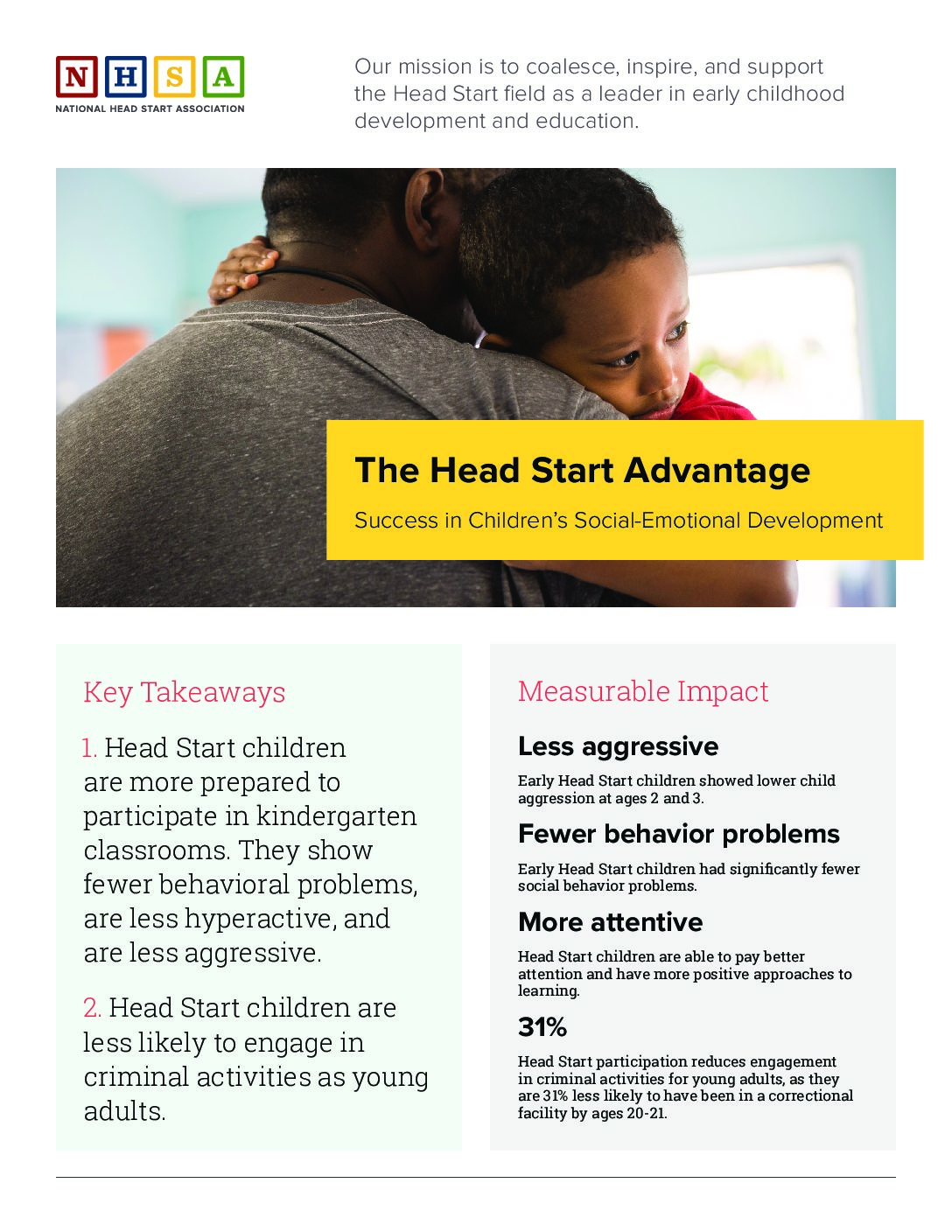Social-emotional development is a child’s ability to create and sustain meaningful relationships and engage with his or her own emotions and the emotions of others. Positive social-emotional development in a child’s early years provides a critical foundation for lifelong development and learning.
- Early Head Start children showed lower child aggression at ages 2 and 3.
- Early Head Start children had significantly fewer social behavior problems.
- Head Start children are able to pay better attention and have more positive approaches to learning.
- Head Start participation reduces engagement in criminal activities for young adults, as they are 31% less likely to have been in a correctional facility by ages 20-21.
A Focus on Social-Emotional Health
The ability to create and sustain meaningful relationships is a key life skill. Because of Head Start’s programatic focus on social-emotional health, Head Start children are more prepared to participate in kindergarten classrooms.
Head Start does not allow for suspension or expulsion based on children’s behavior. Instead, programs use mental health consultants and establish collaborative partnerships with mental health professionals in order to support children and families. The use of on-site mental health consultation to recognize and address social and emotional needs among Head Start children has been shown to reduce problem behaviors. In the long-term, social-emotional functioning is associated with key adult outcomes related to education, employment, criminal activity, substance use, and mental health.
Download the Social-Emotional Advantage fact sheet, explore the research citations, and dig deeper into the Head Start Advantage.

